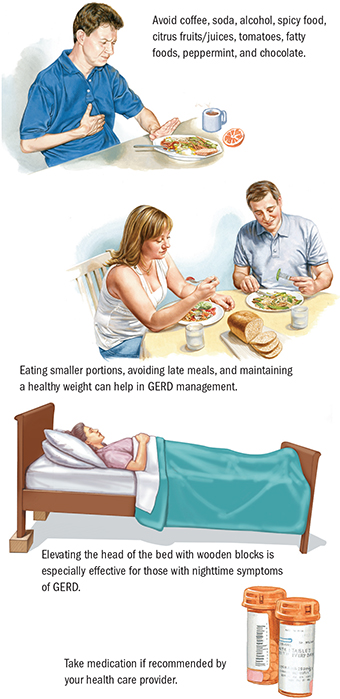
There are actually four different ways for GERD treatment: surgery, medicine, lifestyle changes, and complementary therapies. Often, patients who respond to a medicine or medication regimen are also successful in treating GERD with lifestyle changes.
Most often, those who suffer from GERD have an underlying medical condition that is contributing to their condition. Often, it's an infection or other underlying condition that causes the reflux. However, some people simply have acid reflux, which is brought about by an unhealthy lifestyle.
Acid reflux can be very painful and uncomfortable. It often happens in the lower part of the chest area, which can be felt as a burning feeling or as fullness in the chest that can be felt. In addition to this, people with GERD also have pain when they breathe or cough. For these reasons, many people will seek GERD treatment immediately following an episode.
Because acid reflux is sometimes confused with heartburn, many people with this type of condition are given medications as a remedy. These medications include antacids, which can help to dissolve stomach acids; H2 blockers which may help reduce the amount of acid that gets back into the esophagus; and LES inhibitors that stop the production of stomach acid, which can cause acid reflux.
Unfortunately, for some people, a drug that works to get rid of acid reflux also has side effects. This includes nausea, vomiting, indigestion, bloating, or stomach cramps. Many doctors recommend that a patient take a medication for an extended period of time before trying a complementary therapy.
One of the most popular forms of GERD treatment is called acidophilus, which is taken in the form of a pill. Acidophilus works to lower acid production in the digestive system so that the stomach and the esophagus stay less acidic. By reducing acid production, this medicine helps to prevent acid reflux and GERD. It may be taken as a daily pill or as a capsule or liquid supplement.
Another popular form of GERD treatment is called a complementary therapy
Complementary therapies are medicines and supplements that can treat or even prevent GERD. by strengthening the immune system and decreasing the risk of disease-causing bacteria. Such medications can include certain vitamins, minerals, enzymes, and herbs.
People who prefer to go the natural and alternative medicine route are choosing herbal treatments like probiotics, prebiotics, or enzymes. These medicines, taken in capsule or liquid form, are all natural and do not have any dangerous side effects. In addition, when taken over a long period of time, these medicines can be quite beneficial.
However, not everyone with GERD is eligible for these medicines. A person with a weakened immune system cannot take probiotics and prebiotics, since they can weaken it. A child suffering from diarrhea, liver disease, diabetes, kidney disease, or a condition like Crohn's disease may not be eligible for a supplement that contains probiotics.
Some people, who suffer from acid reflux, can benefit from a low-cost treatment called a homeopathic remedy. These are usually made from herbs that are used to relieve symptoms like acid reflux and GERD. However, these types of medicines can have serious side effects, so it's important to check with your doctor first. Before taking any homeopathic remedy, check with your physician or naturopath.
A supplement that contains herbs to relieve symptoms of GERD and acid reflux is commonly used by those who are on a low-cost or budget plan to treat their condition. Although there are no known risks to using these remedies, it's important to check with your doctor to make sure that you can tolerate them. You'll also need to talk with your health care provider about the best form of treatment for your particular case.
The best thing to do before taking any GERD treatment is to talk with your doctor about any other medical conditions that you may have, so that you know what you should not take. If you don't have any conditions, it may be better to take a natural or complementary form of GERD treatment.
Even though medications can help control GERD, most cases of GERD will clear up by themselves with time. In some cases, however, more aggressive forms of treatment may be necessary. In these cases, a doctor may recommend surgery, which may help to get rid of symptoms permanently.